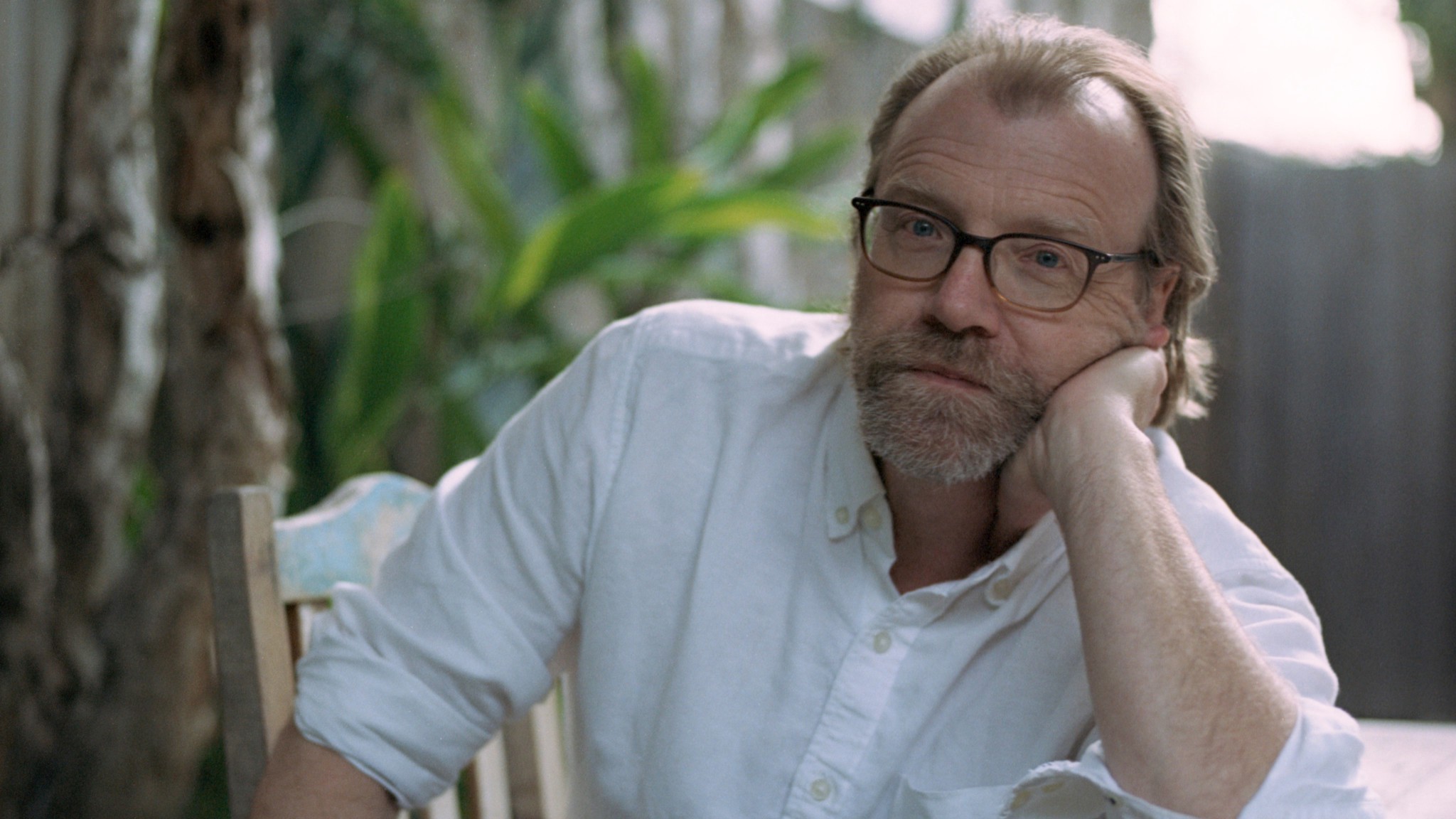Craft
Translation Beyond Metaphor
On Petrarch, grief, and my mother

At the American Literary Translator’s Conference in Oakland this past year (ALTA39) Matvei Yankelevich, one of the founders of Ugly Duckling Press, asked a question during the discussion portion of Don Mi Choi’s keynote address. I don’t remember what he actually asked but I do remember that he prefaced his comment by saying that he wouldn’t ask her to share more metaphors for translation since we’d all spent the entire weekend repeating the phrase, “translation as…” or “___ as translation.” I laughed because I’d been feeling the same way and I’d been asking myself where translation studies and theory could go beyond the use of translation metaphors.
I’d been asking myself where translation studies and theory could go beyond the use of translation metaphors.
In the year following my mother’s death from ALS, a brilliant Jewish writer I met at the Vermont Studio Center suggested creating a ritual to carry out in honor of my mother. According to Jewish tradition I would do that ritual each day for the entire year after she died. I’d been struggling to deal with my grief, to find any way to confront my loss and this seemed like a good, grounded idea. I would translate one of Petrarch’s Canzoniere each day from July of 2013 to July of 2014. Petrarch wrote 366 of them so it was a perfect match and a book I’d become very attached to years earlier as a graduate student of medieval and early modern Italian literature.
At first it was easy; I was still at the residency and it felt good to place energy in something so deeply outside of myself. Those translations, or the first drafts of them, are literal, dictionary-bound and have little to do with my own loss. But as time passed, as I returned to my normal life, translating a poem a day became difficult. I was teaching high school full time, heading an English department, beginning to think about going back to school myself. Then something unexpected happened. My partner’s mother also became terminally ill. The poems became a place to go every morning before work or every evening, alone and full of confusion. The poems helped me to make space for the grieving I would have to handle on my own while my partner dealt with her own loss just ten months after my own. They were a private world for me and I can’t emphasize this enough because two dead mothers is too much for one house in one year.
The poems helped me to make space for the grieving I would have to handle on my own while my partner dealt with her own loss just ten months after my own.
Now, I am finally returning to the translations and reworking them, sometimes rewriting them. Many are translations but the ones I like best are versions. The versions take a line or even just a word from the Petrarch and carry it into my own situation and life. Despite the differences in time and place and what kind of love we each are talking about there is always a point of convergence. This might be because love, no matter the kind, shares many qualities but it mainly, I’d say, has to do with the quality and Petrarch’s work. In his essay, “Saturnine Vision and the Question of Difference: Reflection’s on Walter Benjamin’s Theory of Language,” Rodolphe Gasché writes:
Translatability indicates the work of art’s search for fulfillment in something other than the original itself. Translatability…calls for a liberation of the work of art from itself…a translation implies a displacement, even a disregard of the original’s sense…The objective possibility of translation, a possibility that is also a call for it, can thus best be described…as a structural feature that, within the work itself, points beyond it.
I’ve never been able to pin down exactly what makes a work of literature live on, but I am, for the moment, convinced by this definition. The translations, various and multiple iterations of a work, keep something alive that perhaps, by chance, reaches beyond language. Translation turns literature into an ephemeral experience, situating it close to music or dance — in time.
Translation turns literature into an ephemeral experience, situating it close to music or dance — in time.
I don’t want to make another translation metaphor. I don’t want translation to be a metaphor for grief or grief for translation, but in looking at these two practices I hope to find another way of understanding their connections. I am more interested in the possibility of modes of translation. Reading texts through particular, permanent and non-permanent, experiences and identities that an change our reading and thus change our translation.
I was able to get outside of myself while writing these poems and call on “points beyond.” Grief is the filter through which I was experiencing, reading, and writing. In my case this notion of the filter was a tool through which I was able to arrive at writing about my mother, but filters are endless. Each time we write, our bodies and minds are filters to the world we put to paper. Grief, like writing, is destabilizing. My hesitance in writing about my mother, in being unsure of my next step, has been the best mirror for dealing with loss. Hours would pass but the knowledge of what to do with my feelings, rage, sadness, emptiness, never arrived.
Because grief is a feeling, set deep in the body, these poems seek to translate Petrarch’s feelings of loss and pain through my own body. They are literal translations of feeling — if we can take translation to mean a passing, a transfer. There have been many cases of translators mimicking the lives of those they translate, but for Petrarch the case goes back to 1798 when Alexander Tytler, translator of Petrarch’s Canzoniere, wrote Essay on the Principles of Translation, in which he states that if the translator’s aim is fluency, “he must adopt the very soul of his author.”
While translating Petrarch’s Canzoniere, (also called Rerum vulgarium fragmenta) relating to the man himself, Francesco Petrarca, in both feeling and structural approach to writing, is not particularly difficult. Topics covered include politics, friendship, loyalty and love (of course) but the book really is a book of fragments and experimentation in form. It is also autobiographical, thus lending itself easily to personal struggles. I also started reading Brandon Brown’s The Poems of Gaius Valerius Catullus. Versions of Catullus’s poems that include texts and personal anecdote and a variety of other sources. If flarf can be a filter for translation, I thought, so can my feelings.
If flarf can be a filter for translation, I thought, so can my feelings.
In Dialogues Gilles Deleuze and Claire Parnet write:
We must be bilingual even in a single language, we must have a minor language inside our own language, we must create a minor use of our own language. Multilingualism is not merely the property of several systems each of which would be homogeneous in itself: it is primarily the line of flight or of variation which affects each system by stopping it from being homogeneous. Not speaking like an Irishman or a Rumanian in a language other than one’s own, but on the contrary speaking in one’s own language like a foreigner. Proust says: “Great literature is written in a sort of foreign language. To each sentence we attach a meaning, or at any rate a mental image, which is often a mistranslation. But in great literature all our mistranslations result in beauty.” This is the good way to read: all mistranslations are good — always provided they do not consist in interpretations, but relate to the use of the book, that they multiply its use, that they create yet another language inside its language.
Grief has multiplied the “use” of the original text. The mode through which we read is what creates this language within a language. I was in search of a language within a language after my mother died. Memories behave strangely when one is in shock. I was unable to recall nearly anything that had happened before my own panicked arrival in the hospice unit where she would die. I recalled each step: the phone call, the plane ride, the taxi, the color of the hospital walls, the nurses. I played this sequence over and over in my head in the weeks and then the months following her death. What I could not recall was her voice and this pained me endlessly. I tried. Friends who’d only met her a few times could remember her voice, things she’d said to me, but I had nothing. I was only able to recall the sound of her last breath.
Even now that more time has passed, three years, I cannot remember her voice. I can smell her. Feel her hands. The curve of her nose. I cannot hear her voice. My therapist tells me to write about her but I can’t write about her if I can’t hear her. But I did listen to her, for years and years. Her relationship to language influenced my own. How she would sing in the car, listening to Leon Russell, to Led Zeppelin. She was able to make beautiful sounds. When I would come back to visit the house as an adult, people always thought I was her when I answered the phone. Should I speak aloud to myself to hear her now?
People thought I was her when I answered the phone. Should I speak aloud to myself to hear her now?
Simone Weil, in Waiting for God, writes about searching for answers as well as the need to be open to the unexpected:
If someone searches with true attention for the solution to a geometric problem, and if after about an hour has advanced no further than from where they started, they nevertheless advance, during each minute of that hour, in another more mysterious dimension. Without sensing it, without knowing it, this effort that appeared sterile and fruitless has deposited more light in the soul. The fruit will be found later, one day in prayer.
The repeated action, the ritual of translating a poem a day, amounted to a prayer. As a child I thought a prayer was when I spoke to god or the universe but as an adult and as a translator I see that the prayer is in the listening. I remember our last phone call, June 2, 2013, a few days after my birthday. She told me she understood how melancholic I felt on birthdays, that she shared this melancholy. I remember what she said but I would prefer to remember how. The tones, the breaths, the breaks are all missing. I remember being in the airport in Munich, rushing home three days after that June 2nd phone call and my father on the phone telling me to tell her I was on my way; I sobbed into the phone, breathing softly so as not to reveal how scared I was, and she listened. He said her eyes widened as I spoke to her, she knew I was on the way. The doctors told me ALS patients can hear everything until the very end; the patient knows what is going on. It is hard to believe because her eyes were open, they were tearing, but she didn’t move, not once. I choose to believe the doctors, I choose to believe she was listening.
In Sounding the Margins Pauline Oliveros writes:
Here is one of my practices:
Listen to everything until it all belongs together and you are a part of it.
My versions of Petrarch attempt to listen to something within the original poems and make it part of my own experience.
Soon after I returned home to Italy my visits to my therapist became even more frequent. She kept trying to get me to write letters to my mother and I never agreed. I’d done it once while she was alive, while she was sick and it was angry and painful and I didn’t feel ready to do that again. Instead, I allowed the translations to take the place of letters. Petrarch’s sorrows soon became my own.
I allowed the translations to take the place of letters. Petrarch’s sorrows soon became my own.
Translation is the loss of one form of communication but the gaining of another. A non-dualistic understanding of the world can in turn lead to a non-dualistic form(s) of communication within language. No longer does the language move from one side to the other but the two sides experience one another continually in the production of meaning. This translation project was far from a quest for equivalencies; it was a way to understand a way to remember my mother and, above all, to come to terms with the end of the form of relationship I’d had with her for twenty-nine years. Being able to use language to find language proved to me that there was a way of continuing my conversation with her.
Jacques Derrida, in Ear of the Other, writes:
A translation puts us not in the presence but in the presentiment of what “pure language” is, that is, the fact that there is language, that language is language. This is what we learn from a translation, rather than the meaning contained in the translated text, rather than this or that particular meaning. We learn that there is language, that language is of language, and that there is a plurality of languages which have that kinship with each other coming from their being languages.
Translation has often been what it takes for me to find kinship with language. Only after years of translating other people’s stories and poems did I feel comfortable putting my own work, independent of a source text, into the world. I think this may come from some inability or hesitance I have around accessing true feelings and emotions. Prayer works for many people, sometimes therapy works for me, but literature has really been the most reliable way for me to access emotion. As Derrida reminds us, however, I have been in touch with language, not the emotions themselves. Whether these two things exist separate from one another is debatable, but the process of language grants me freedom in a way nothing else can. This freedom is essentially agency and that agency allows me to have subjecthood, something essential for an authorial voice.
The poems in translation lead me to poems about my mother. I wouldn’t have had the courage without the initial translations to move forward. I am not the first woman who has used her tears to claim subjecthood or to write about difficult material. My grief gave me agency. I remember reading about Margery of Kempe, the 14th century mystic. She began having visions during the post-partum depression she faced after the birth of one of her fourteen children. Once, when she returned from pilgrimage to the Holy Land she couldn’t stop weeping. All the tears she cried. The weeping was the only way anyone would listen to her messages from God. Men in positions of power called her a whore and a liar. The tears allowed her to reach her public, to have her story published, to have a voice.
Prayer works for many people, sometimes therapy works for me, but literature has really been the most reliable way for me to access emotion.
An authorial voice is a responsibility. For a translator the responsibility is to both the original text and to the new creation, the new version and all of its unique demands. Combining this idea of responsibility with the material I am working with, with memories of my mother, her life and then her death seems particularly weighty. My memories are not always clear, Petrarch’s words continue to serve as triggers into deeply forgotten images, scents, moments.
Translation is a half-memory leaving plenty of empty space for new creation, misinformation, misinterpretation. Derrida, in the Ear of the Other, writes, “To understand a text as an original is to understand it independently of its living conditions — the conditions, obviously, of its author’s life — and to understand it instead in its surviving structure.” In this text Derrida is a proponent of translation as survival, as a way for texts to live in different situations, eras, places. This is deeply tied, of course, to Benjamin’s understanding of the translator’s work and what makes a work translatable. As I continue to revise these poems, these translations or versions or whatever I will finally decide to call them, I see multiple versions of survival at work. I see traces and maps of Petrarch’s Canzoniere, a book that has been with me for nearly ten years of writing, and I see the poems in new ways each time I revisit them. I also see the survival of my mother and the pain I was going through when she died. The poems are not memorials, not of Petrarch’s work and not of my mother, but they reveal the process of survival, of working though something while allowing it to speak for itself.









